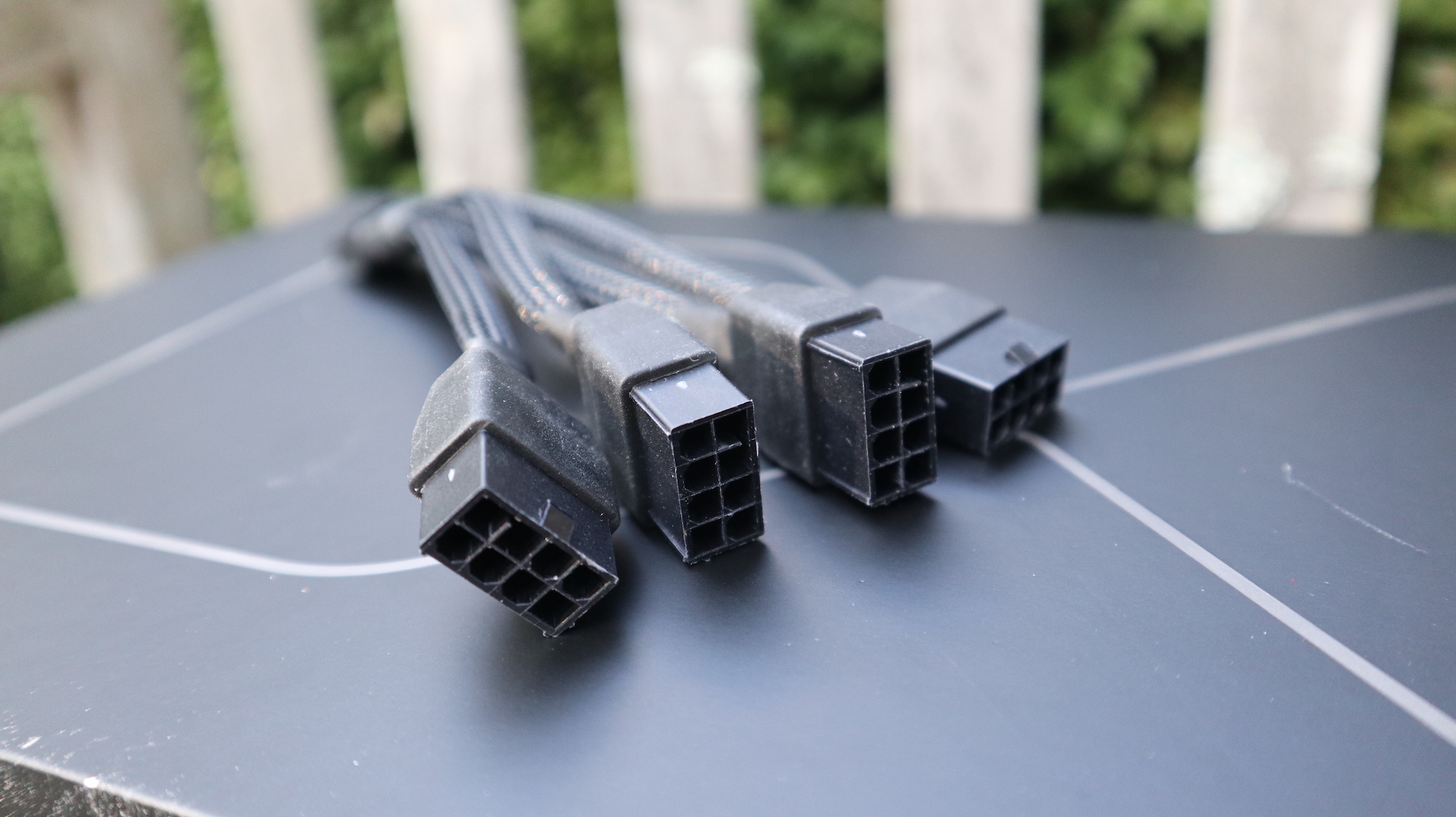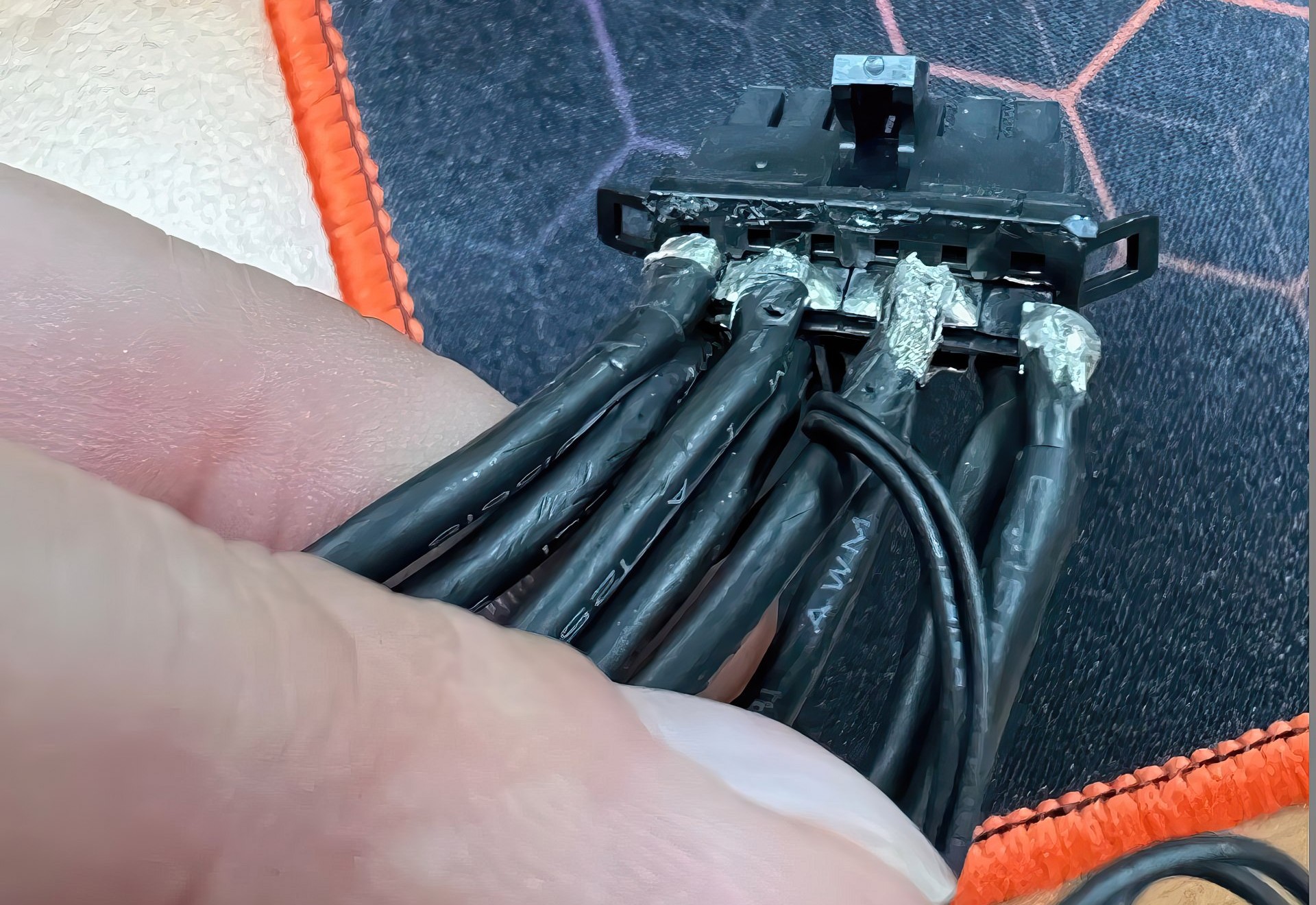Update, 10/31/2022: Additional testing from the Gamers Nexus YouTube channel over the weekend added new wrinkles to the ongoing RTX 4090 cable-melting saga. The channel dissected and tested a total of five different 12VHPWR adapter cables from different RTX 4090-series cards, and they didn't notice the same quality issues that Igor's Lab's Igor Wallossek posted about last week. They also weren't able to recreate conditions that caused their adapters to melt, even with a cable that had been intentionally damaged.
Notably, all the adapter cables that Gamers Nexus examined use wires that are rated for 300 volts, while the cable that Wallossek tested last week appears to be rated for 150 volts. The soldering method used for the cables that Gamers Nexus tested also differed from what Wallossek found in his adapter cable, making it harder for users to damage or break the connection between the wire and the connector.
This additional information doesn't mean that Wallossek's testing is "wrong" and that Gamers Nexus is "right," something that the Gamers Nexus video is careful to acknowledge. If Nvidia is using multiple suppliers, or if there have been variances between different manufacturing runs for these adapters, it could create a situation where some adapters are fragile and error-prone while others are completely fine. This is why product recalls often focus on a range of serial numbers or on products manufactured in a certain date range.
At this point, it's clear that the entity best positioned to figure out the problem is Nvidia—individual testers can't test at the scale needed to track down issues across multiple suppliers or manufacturing runs. So far, the company has only said that it is in contact with some of the affected users and is continuing to investigate.




 Loading comments...
Loading comments...
